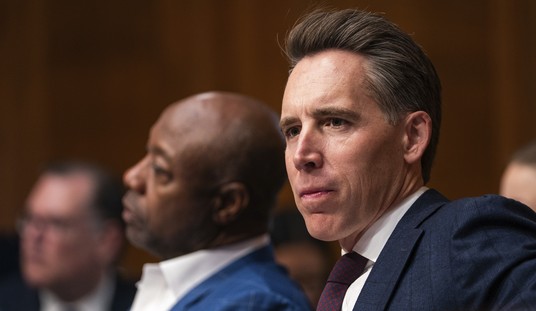Israeli politics is in the eye of the hurricane, but the calm won’t last long.
After corruption allegations forced Prime Minister Ehud Olmert to announce that he would resign following an internal party primary to replace him, the political calendar is gearing up for the aftermath of the September 17th vote. No one knows for sure whether snap elections will be held or whether a new coalition will be formed that could postpone elections for up to two years.
While only two candidates — Foreign Minister Tzipi Livni and former Defense Minister and current Transportation Minister Shaul Mofaz — have any hope of succeeding Olmert, two others are vying for the throne. Though long time pol Meir Shetreet and Minister of Internal Security Avi Dichter have little chance, their presence in the race, combined with a party rule that requires a candidate to garner at least 40% of the vote, may force a run-off a week later. In the past, such minor candidates have dropped out of the race at the last minute, avoiding an embarrassing defeat and instead assuming the role of kingmaker.
Whatever happens, by September 24, either Livni or Mofaz will take the reins of Kadima. While Livni leads in the polls by a substantial margin, a lot of the smart money is on Mofaz. To many, this race looks like a repeat of the Labor leadership contest in 2005. Then, a very popular Shimon Peres was stunned on election day when a double-digit lead in the polls didn’t help against a better organized Amir Peretz. With an estimated 40,000 primary voters deciding this contest, organization should prove decisive. Edge to Mofaz.
If Mofaz wins, his only viable option is to form a coalition because if he fails to do so, he will face an election that he will almost certainly lose to Benjamin Netanyahu . The prospects of forging that coalition increased considerably two weeks ago when Labor leader Ehud Barak picked up the morning paper and saw that his party would win 12 or 13 seats in new elections, down from 19 in the current Knesset.
To avoid elections, Barak will rush into any coalition because he knows that the political lives of Labor party leaders are nasty, brutish and short. In the past seven years, Labor has had no less than six party chairmen (Barak, Benjamin Ben Eliezer, Amram Mitzna, Peres, Peretz and Barak again). In contrast, the Likud party and its ideological predecessors have had only four different chairmen in the last 60 years (Menachem Begin, Yitzhak Shamir, Benjamin Netanyahu, Ariel Sharon, and Netanyahu again). Likud leaders survive electoral defeat (Begin lost eight elections before winning one). Labor leaders don’t. So a trouncing such as the one the polls predict for Labor would surely spell the end of Barak’s political career.
With Labor’s 19 seats cobined with his Kadima party’s 29, Mofaz would be close enough to the magic 61 he needs to form a coalition in Israel’s 120 seat Knesset. A number of smaller parties will get in line to sell themselves to Mofaz, who will be only too willing to buy the premiership.
The fly in Mofaz’s ointment would be if Livni decides not to play second fiddle any longer. Convinced that she could translate her broad public support into a general election victory by running at the head of a new party, she could potentially break away with other disgruntled members of Kadima and trigger new elections.
And what if the polls are right and Livni wins? Some of her advisors are arguing that rather than sully her hands and reputation with the dirty work of coalition building, she should use the momentum of a primary victory to propel her into the general elections.
At first glance, that strategy appears sound. Faced with the inevitable coalition demands of the likes of Shas, an ultraorthodox party that is as loved by its loyal followers as it is hated by everyone else, she could proclaim her refusal to “play the politics of the past” and head to a general election as the savior of what’s left of the country’s public norms. With Olmert’s scandals (the attorney general is to decide soon whether to accept the police’s recommendation that he be indicted) fresh in the background and a Leftist press fully mobilized behind her (and against Netanyahu), she could ride a wave of public disgust to the premiership.
But she has an alternative. She too could form a government. With elections a viable option for her, she might be strong enough to temper the demands of potential coalition partners. Though her hands would get a bit dirty in the process, she could gain an invaluable asset: credibility as a PM. While Livni is very popular, Israelis are less certain she is “suitable” for the post of Prime Minister.
Faced with existential threats, Israeli voters demand more than honesty from their leaders. Ariel Sharon was a case in point. Nearly 60% of the public consistently approved of the job he was doing as Prime Minister even though a nearly equal percentage thought he was corrupt.
By forming a new government, even a short-lived one, she could convince skeptical Israelis that she is ready to handle the top job, and a glaring weakness her opponents could have exploited in the next campaign would be taken off the table.
Exactly how this political storm will play out is still unclear, but the first gusts will be felt any day now.









Join the conversation as a VIP Member